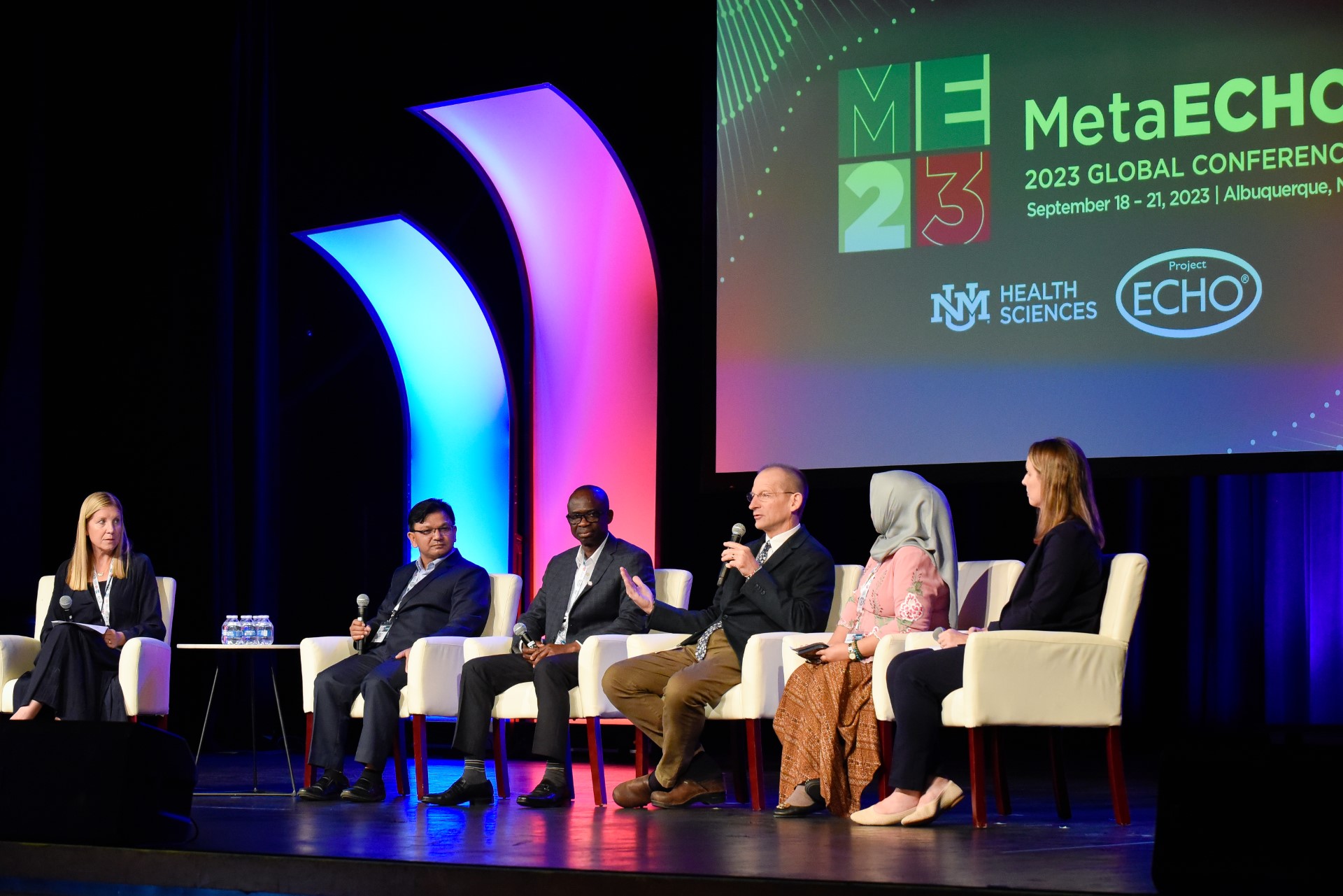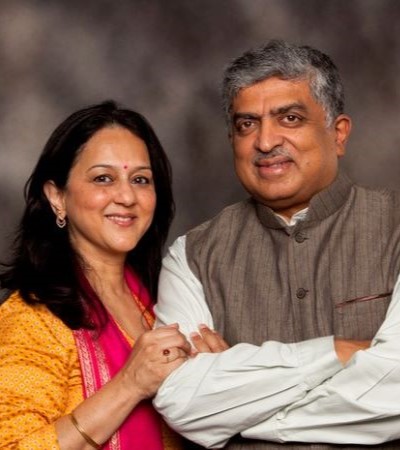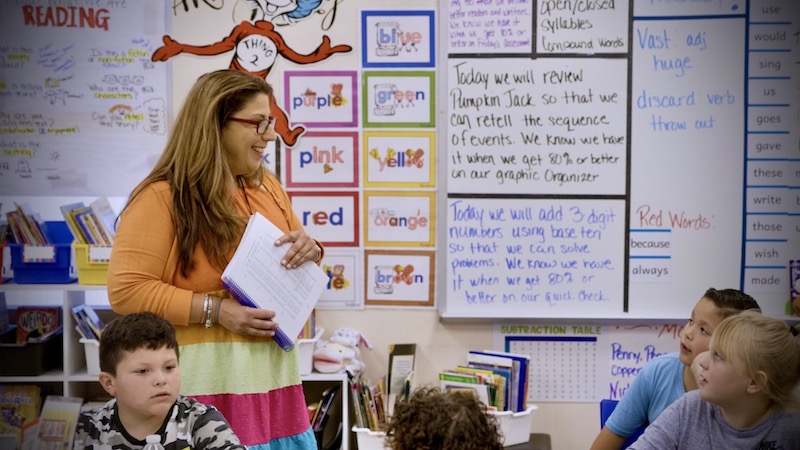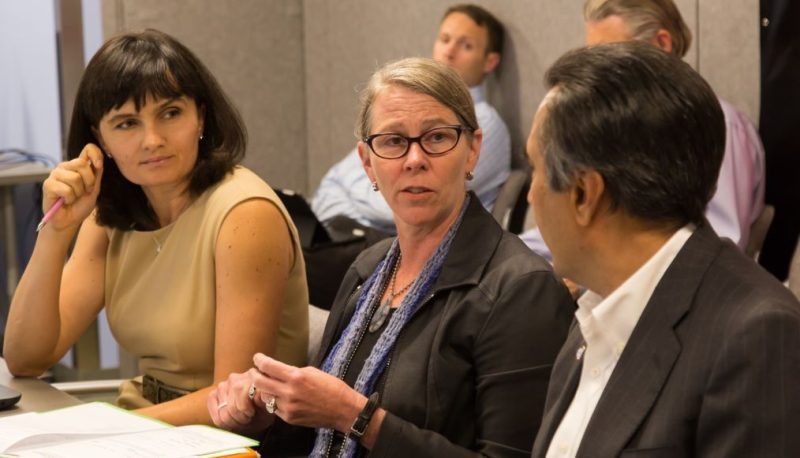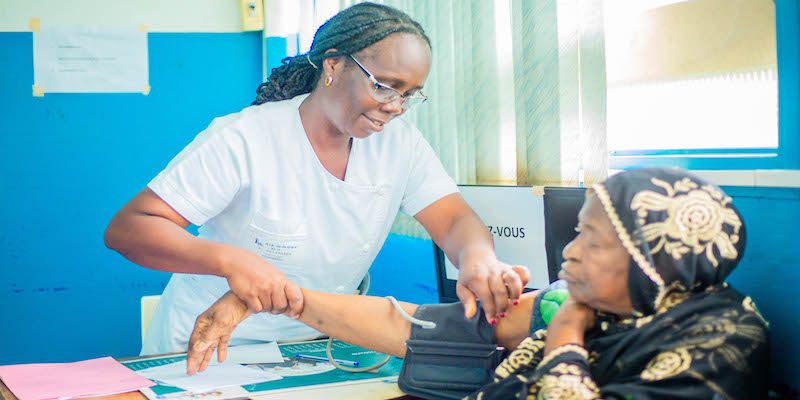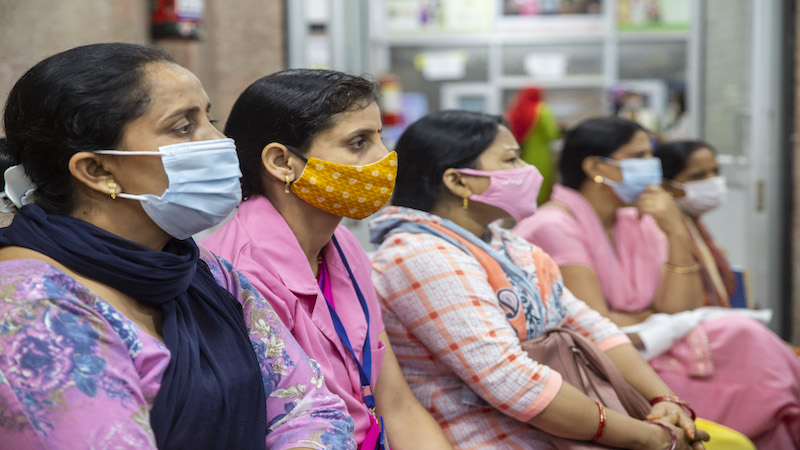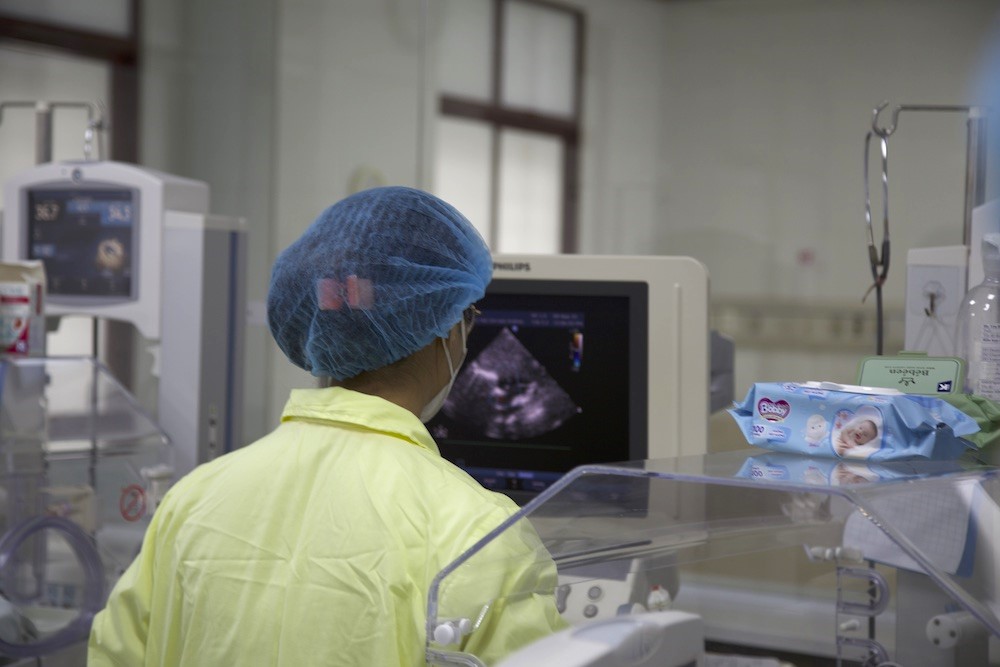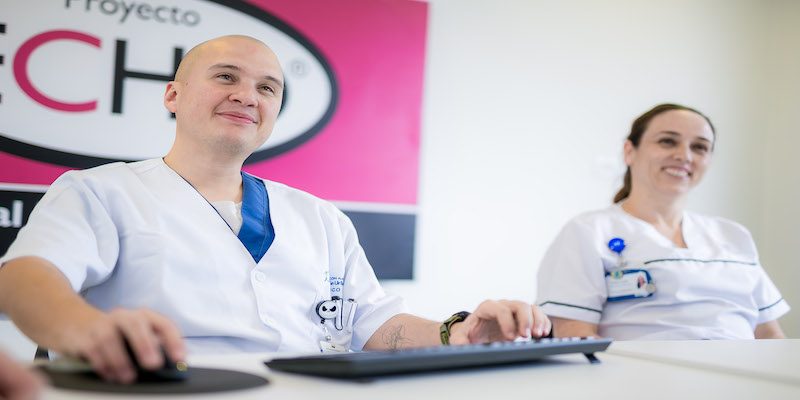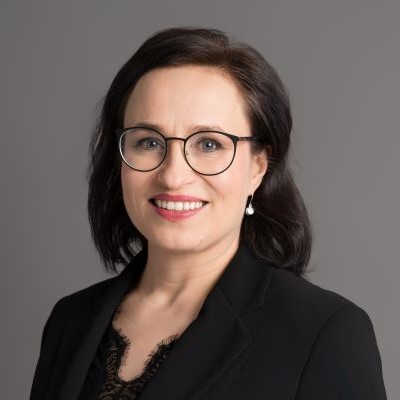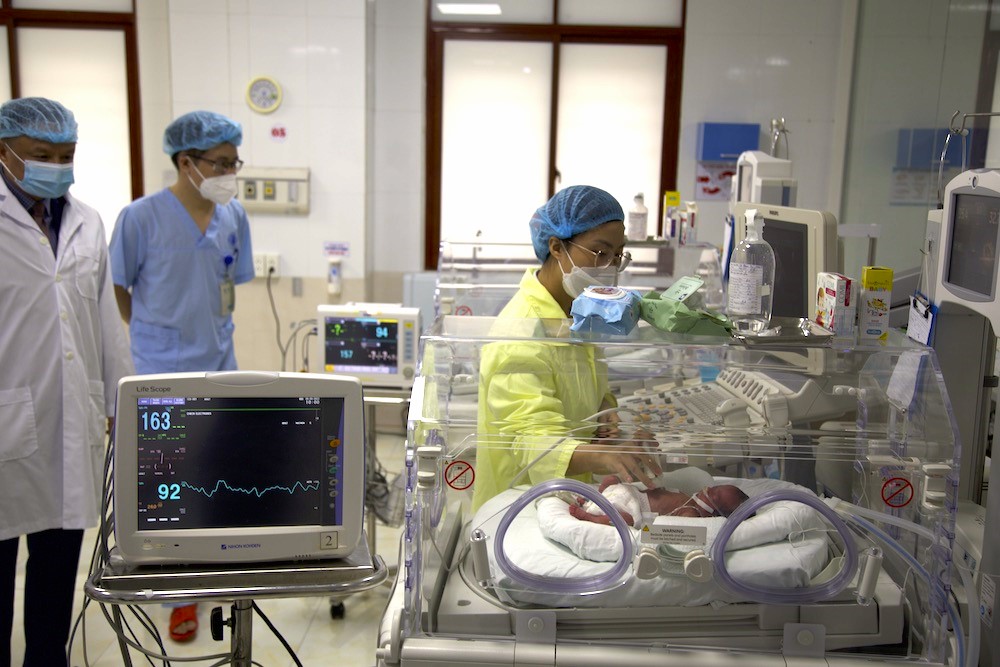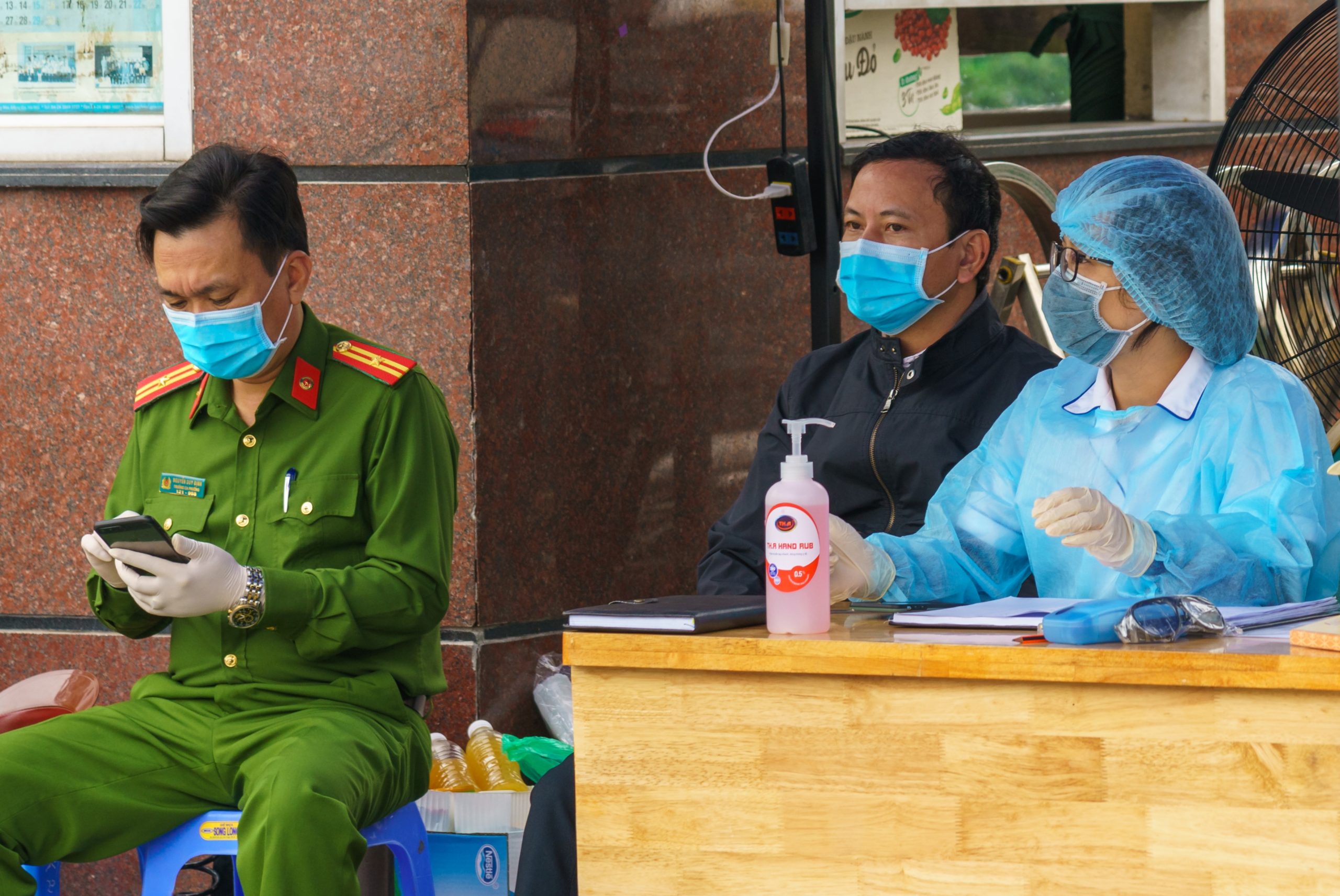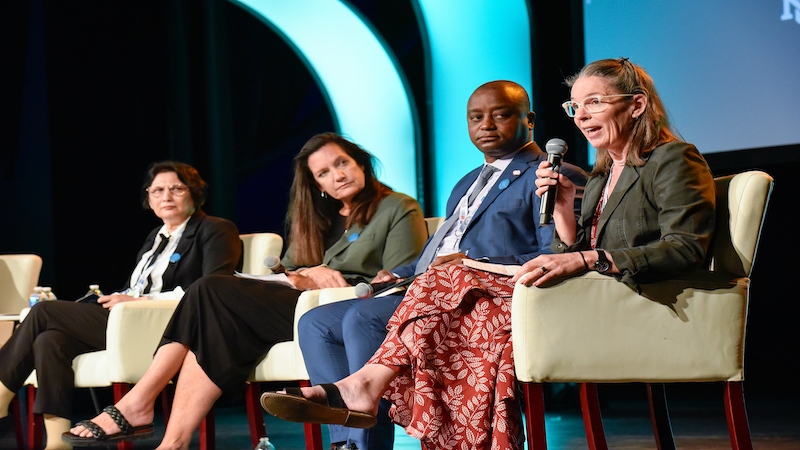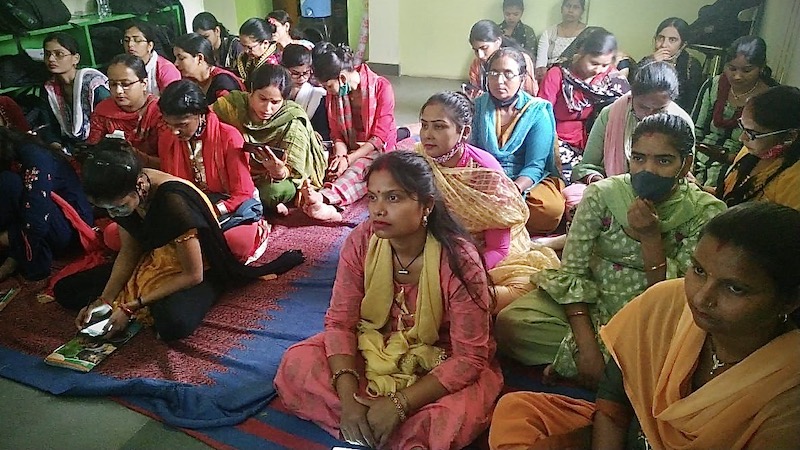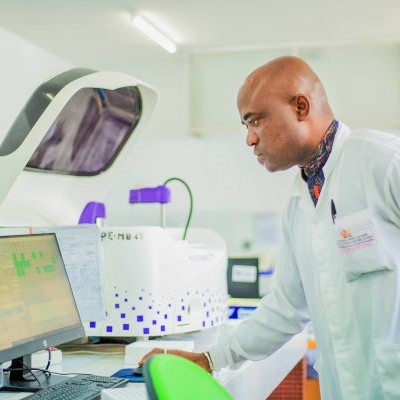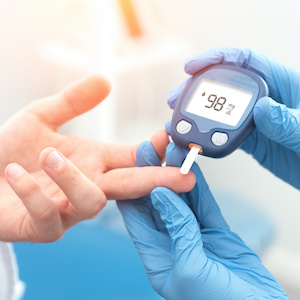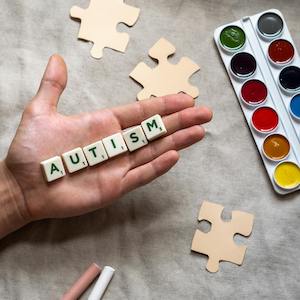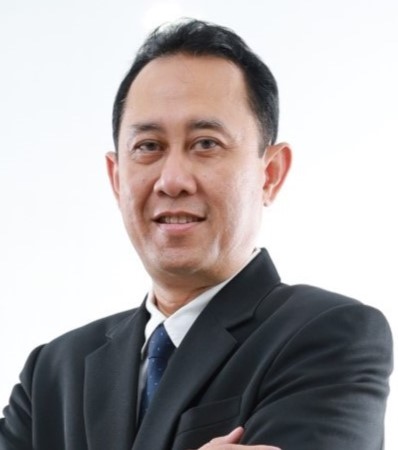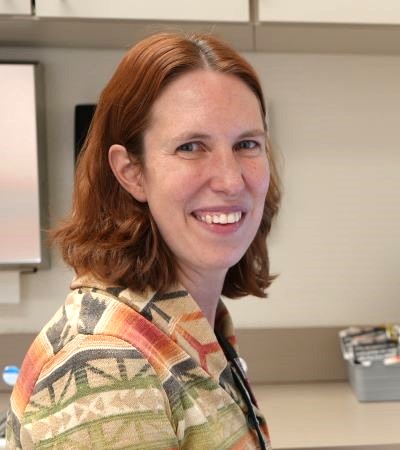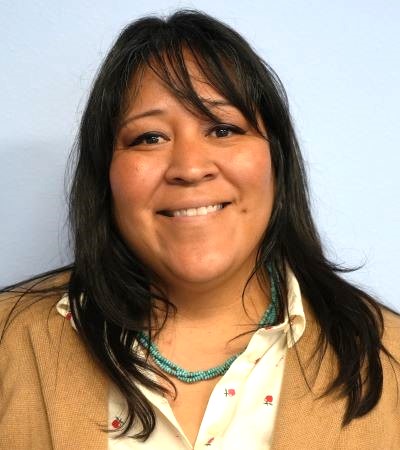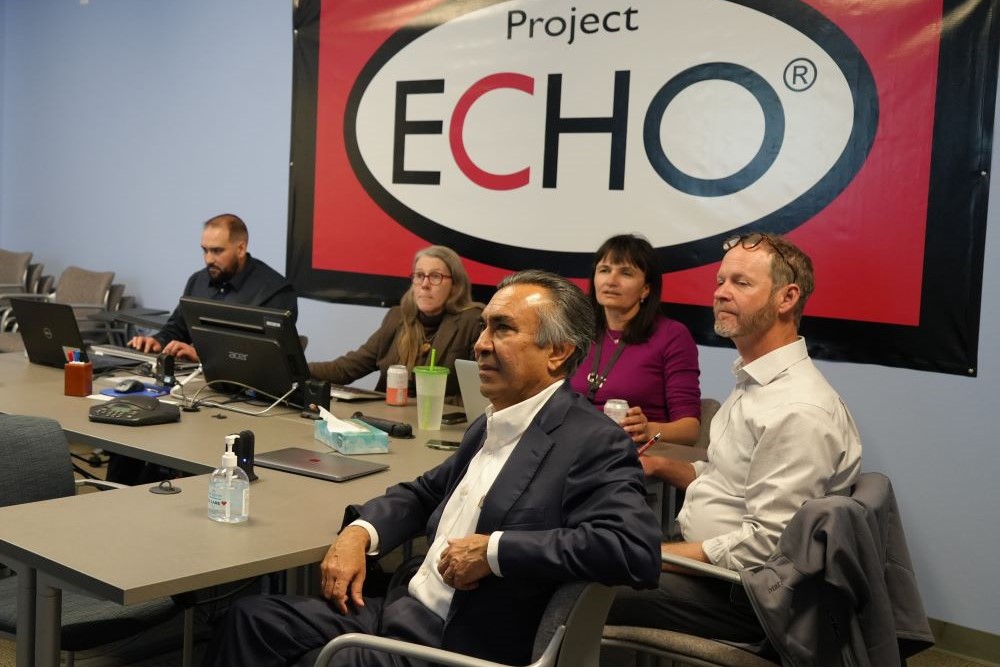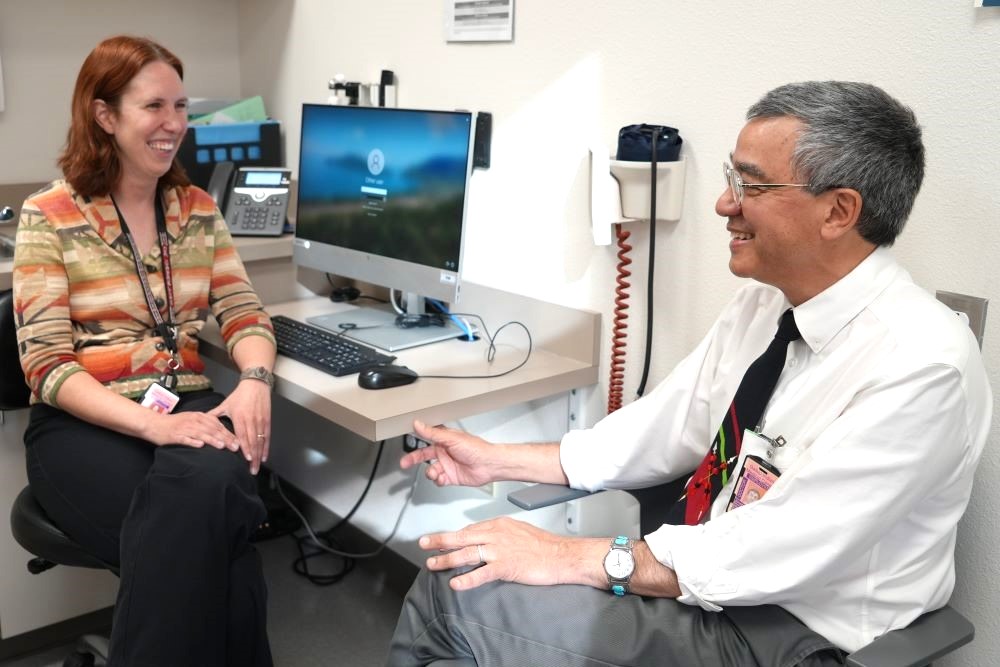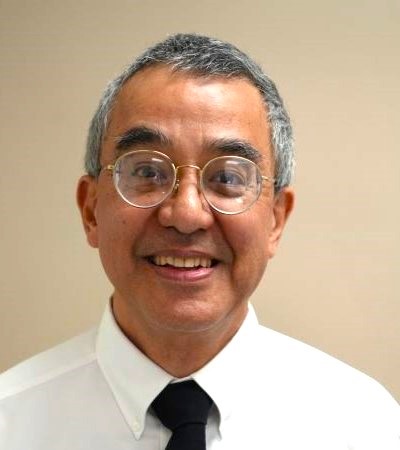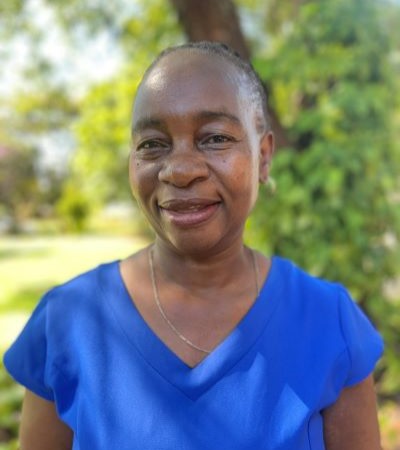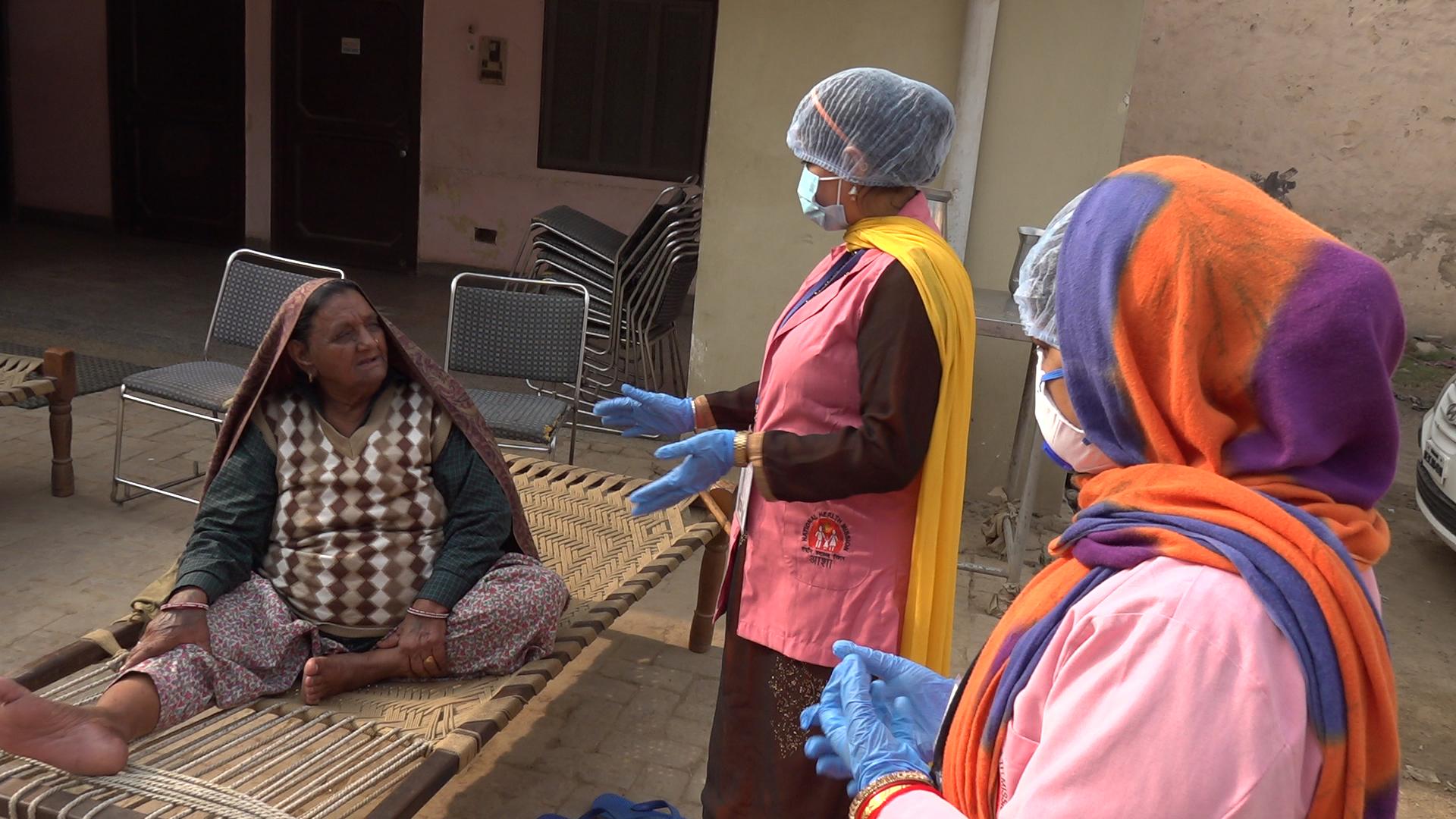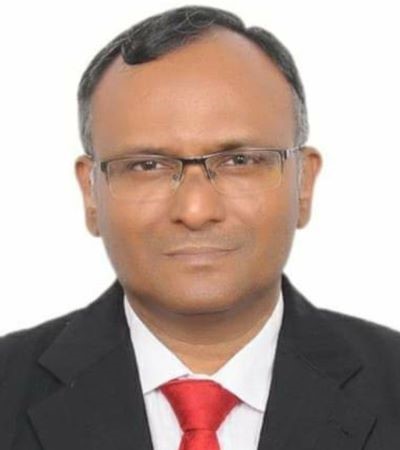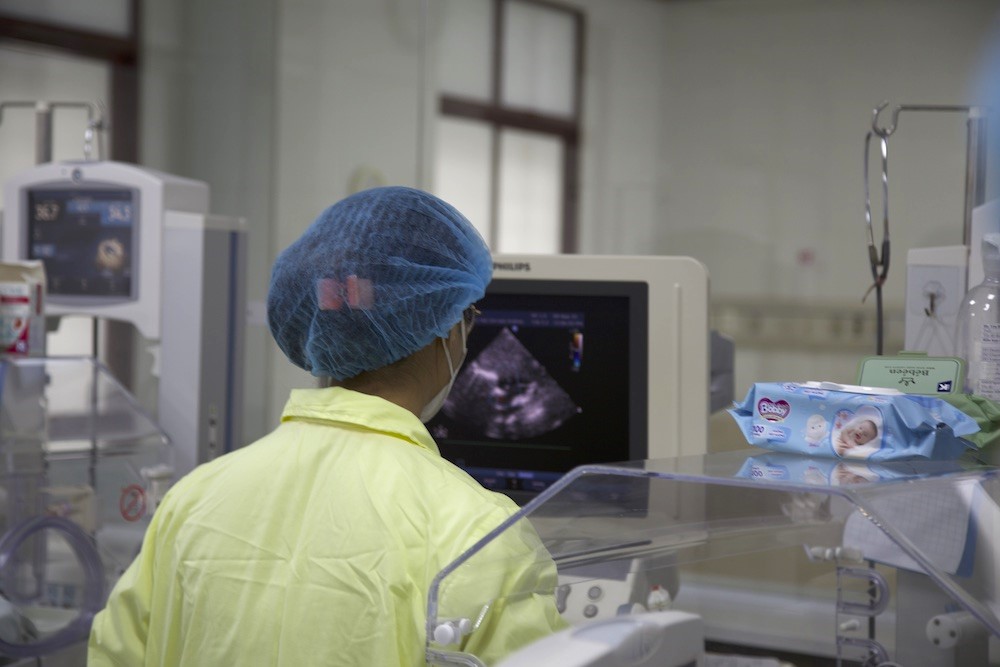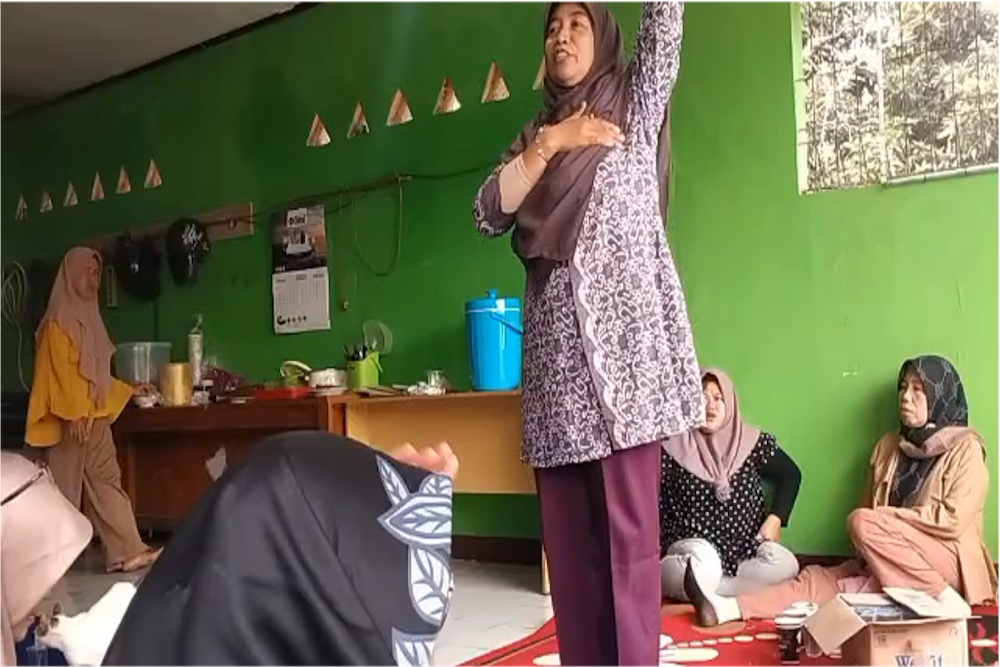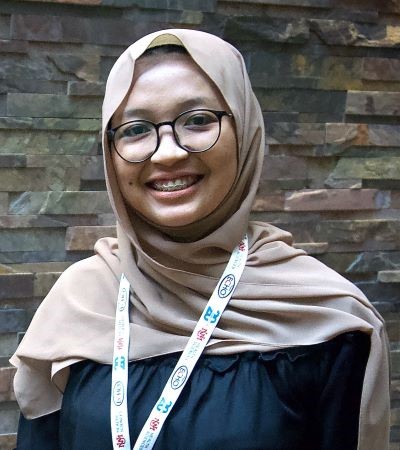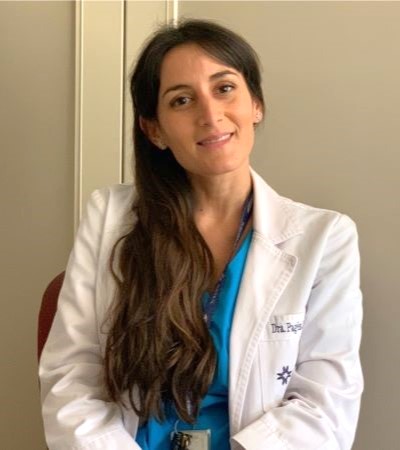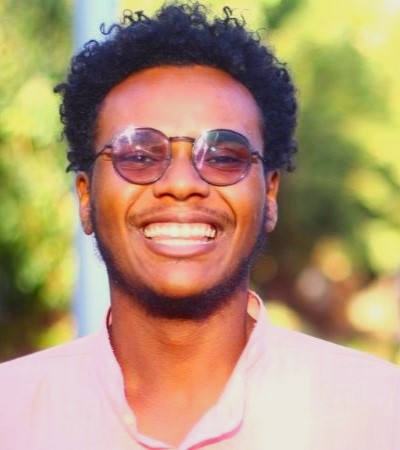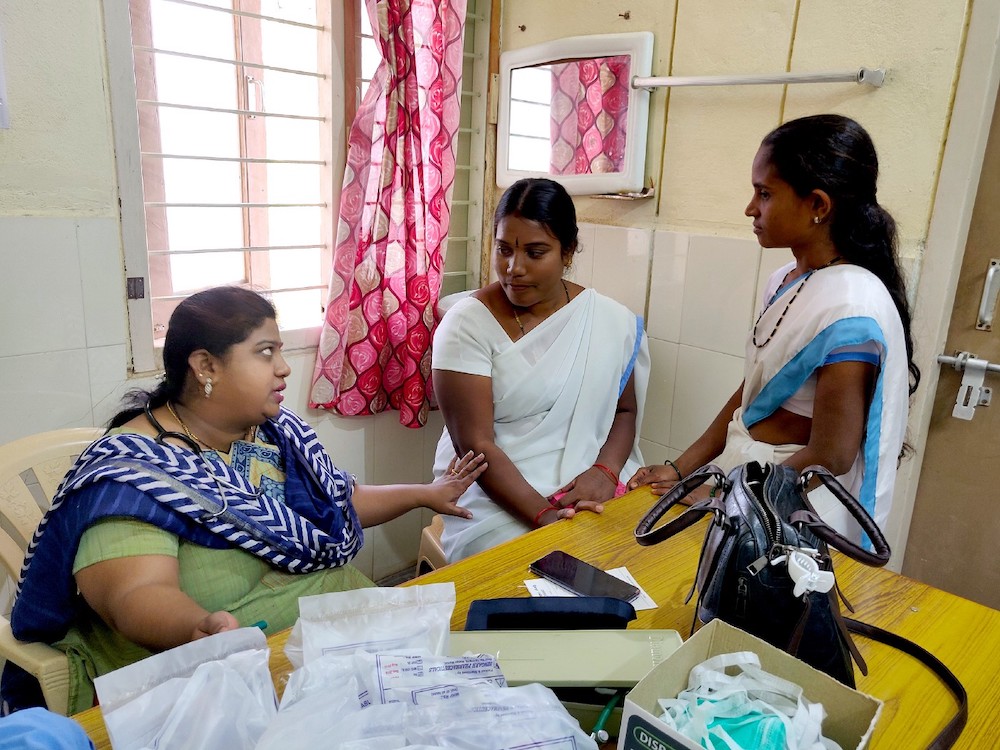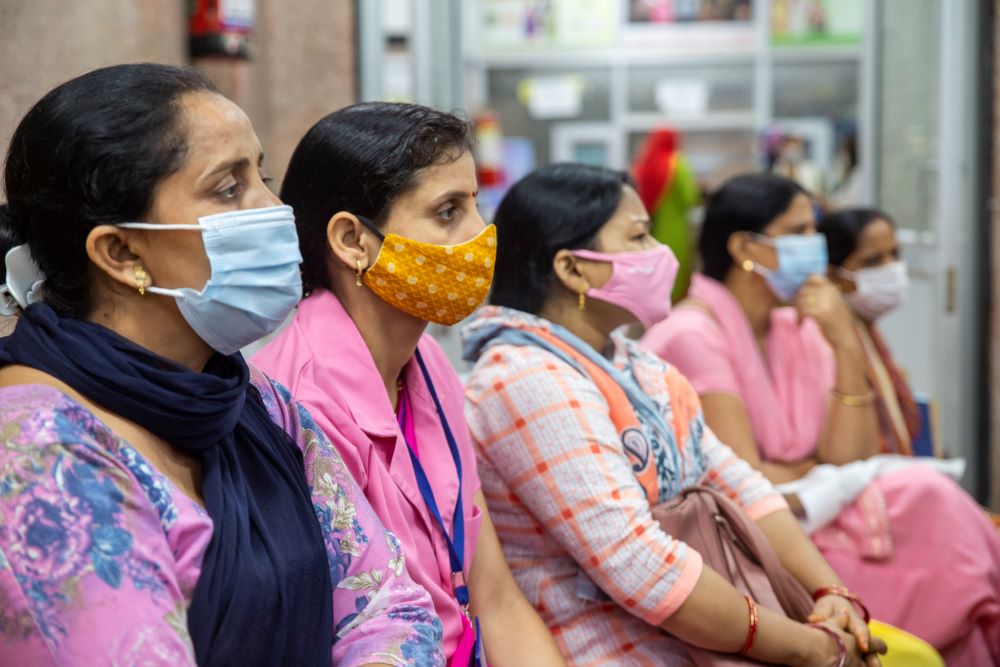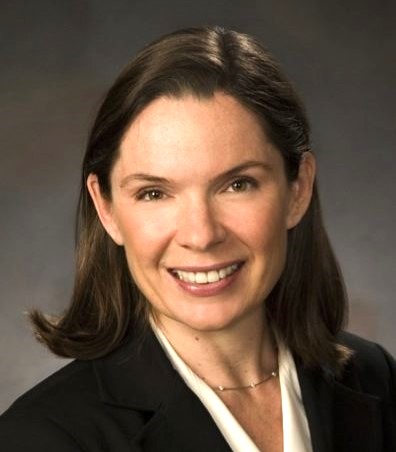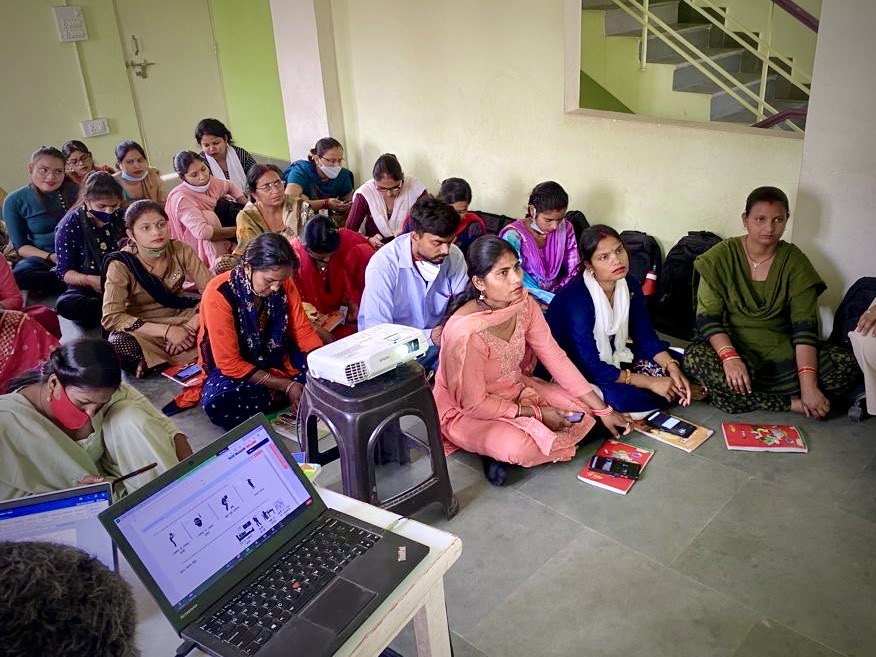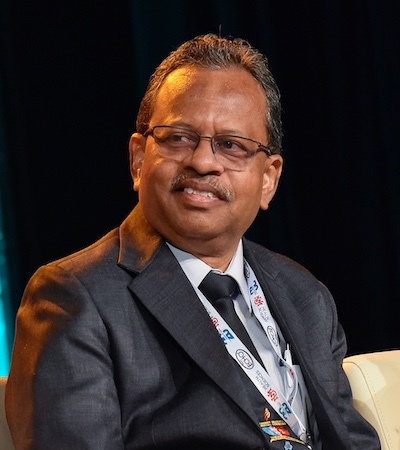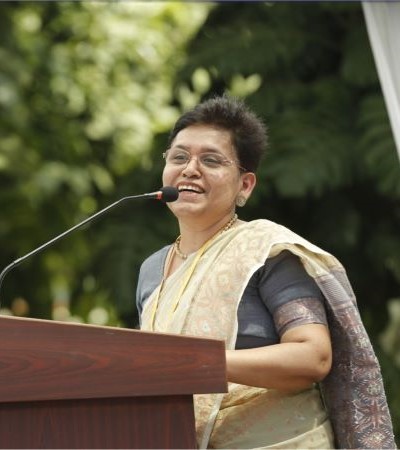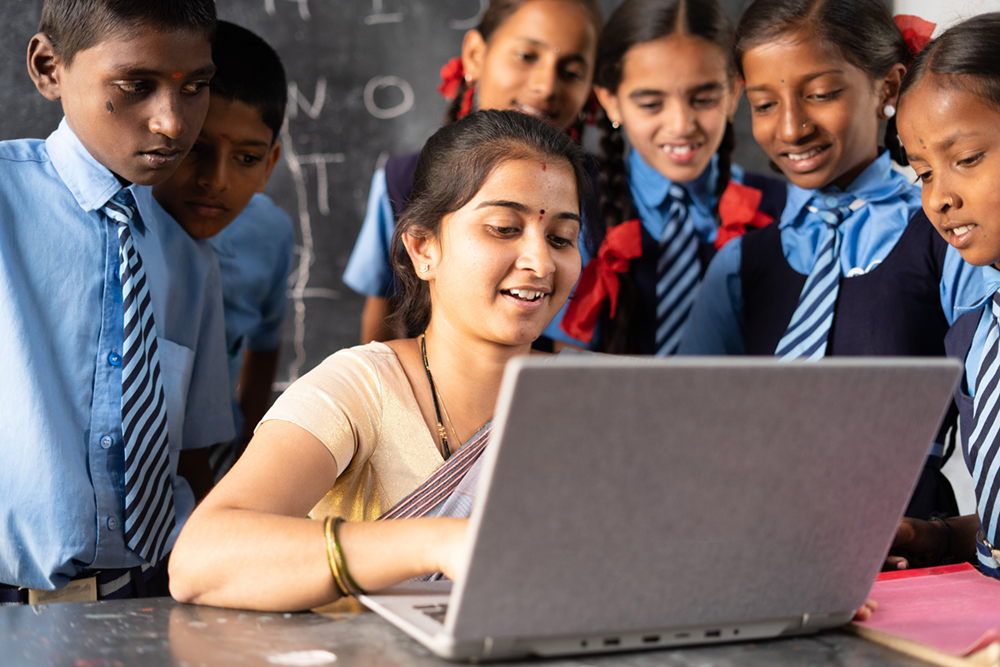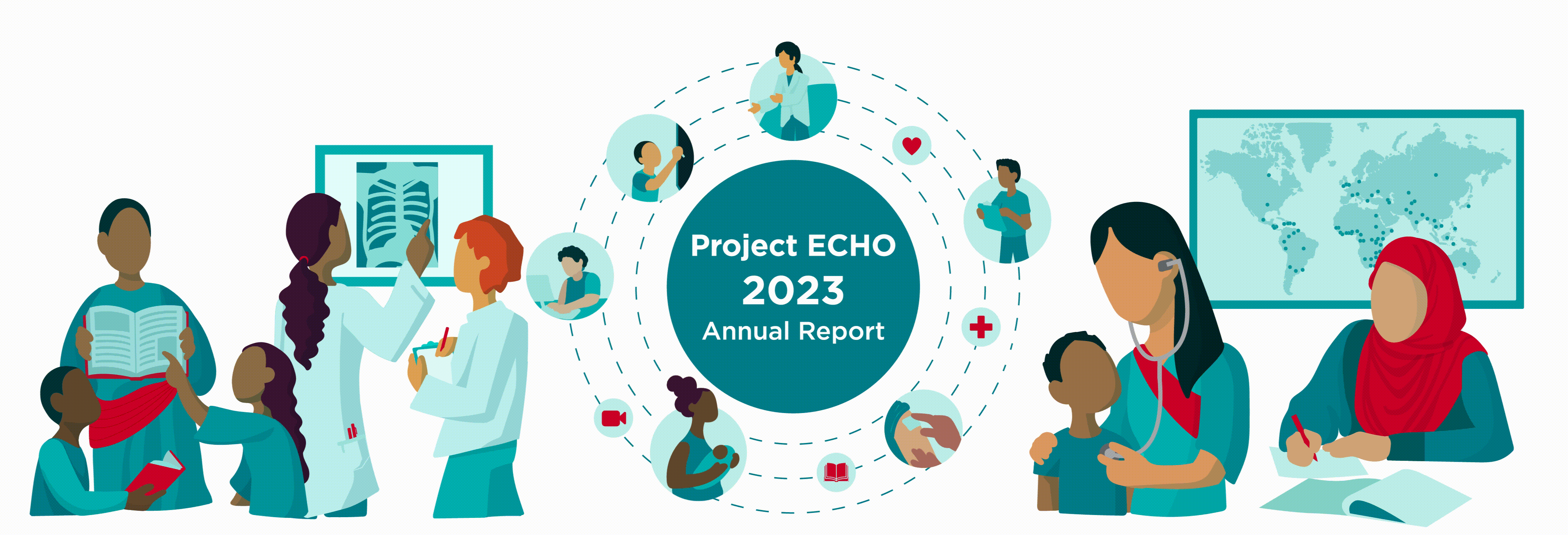
Message from Dr. Arora
Dear Friends,
When we first developed the ECHO Model in 2003, I couldn’t have imagined the catalytic power Project ECHO would unleash.
Starting with a single hepatitis-C program, today more than 1,200 partners are running ECHO programs with attendees in nearly 200 countries. More than 2 million people have attended ECHO sessions, and more than 500 peer-reviewed articles demonstrating ECHO’s efficacy have been published. We estimate, conservatively, that more than 200 million patients around the world have benefited.
I’m grateful to everyone who has participated in ECHO sessions, started ECHO programs to solve a problem in their community, and funded this work. It is all of you who have made this impact a reality.
People sometimes ask, what’s so special about the ECHO Model?
At its core, the ECHO Model is a simple but potent recipe for holding an ongoing conversation with a virtual community, using cased-based learning and implementation of best practices as the basis for problem solving and learning. In the beginning, we focused on solving the problems of individual patients—how to reduce their high blood pressure, treat their complex diabetes, or get them appropriate addiction services.
Over time, we have learned that the model works just as well to support systems change, whether that is helping clinics improve patient access to care; HIV programs target outreach; or nursing homes reduce use of anti-psychotics and the spread of infections. In every case, ECHO is ensuring equitable access for all.
Because it’s virtual, the ECHO Model delivers results much more effectively and efficiently than traditional face-to-face trainings, which can be prohibitively expensive. A study by the Kenya Ministry of Health AIDS and STI Control Programme found that, while their traditional in-person trainings cost about $800 per person, ECHO training and mentoring—a low dose, high frequency approach—was far less expensive (at $21 per person), and just as effective.
More than a protocol for creating a robust community of practice, the ECHO Model is based on trust, mutual respect, and—dare I say—love; principles that I believe are core to its power and success.
- ECHO grows out of a core commitment to equity and a culture of co-creation: “all teach, all learn.” Since everyone is learning and sharing together, this culture helps to reduce the hierarchy that can often exist between experts and students.
- The model is based on the fundamental idea that knowledge grows with sharing. Unlike material things, knowledge doesn’t diminish when we give it away. If you share your expertise with me, I am enriched by your knowledge and I can contribute my own background and experiences. By sharing our cumulative knowledge and expertise with each other, our impact grows and we create more contextually relevant solutions.
- As participants become more and more expert over time, they are empowered to act as advocates in their organizations and local communities. We have seen this individual transformation happen again and again, creating agents of change in communities that need timely, relevant and actionable solutions.
Experts around the world use ECHO in creative ways to solve a wide range of challenges. We have seen ECHO programs ranging from addiction to kidney disease, diabetes, and even rare diseases, such as Ehlers-Danlos syndrome.
ECHO programs have also been developed to support schoolteachers, farmers, and even workers building clean water infrastructure. The ECHO Model has proven to be effective in supporting frontline professionals in many different domains, wherever problems are complex and local workers need ongoing guidance and mentorship.
The world is falling short on the 2030 United Nations Sustainable Development Goals.
This past year, our team has been pushed to think deeply about how the ECHO Model might be able to help partners globally reach the UN Sustainable Development Goals—the 17 commitments the global community has made to build a more just and sustainable world by 2030.
As we pass the halfway point for reaching those goals, governments, NGOs and grassroots organizations alike are grappling with how to accelerate and focus those their efforts. What’s on the line is our commitment to billions of those most vulnerable to help raise them out of poverty and provide a better future for their children.
How can the ECHO Model help the global community reach the 2030 goals?
Most ideas worth implementing are complex and need to be adapted to local context, politics, and culture. We believe the ECHO Model provides an effective and adaptable tool to help scale best practice implementation in many areas.
A 2020 study by a leading global consulting firm showed that simply by ensuring that people across the globe had access to the existing best practices, we could reduce the global disease burden by 40% over the next two decades. This is low-hanging fruit and a way we believe Project ECHO can make a huge difference.
We know this is possible because the ECHO Model has been used to quickly scale up and strengthen best practice care, leading to significant increases in the number of people treated and the reduced burden of seemingly intractable diseases.
- When the state of Bihar in India faced a significant and sudden increase in the number of people seeking treatment for alcohol addiction, there were very few trained specialists to address the crisis. After a year of working with India’s National Institute of Mental Health and Neurosciences to train district medical officers on addiction medicine, the 22 district officers who participated in an ECHO program treated more than 23,000 patients, greatly improving access to addiction support across Bihar.
- In Namibia, where HIV/AIDS is a leading cause of death, the Ministry of Health launched ECHO programs across the country to teach nurses, physicians and pharmacists about HIV medications that reduce the risk of transmission, among other topics. Health care professionals’ knowledge on HIV improved, and providers collaborated with peers and asked questions, helping them feel less alone and more confident in their work. To date, more than 140,000 Namibians living with HIV have been impacted by Project ECHO.
Providing a helpful roadmap, the Copenhagen Consensus outlines key strategic interventions the global community can make to optimize our ability to reach key SDGs. For example, with relatively modest additional investment, the global community can greatly expand access to tuberculosis treatment, saving millions of lives.
The ECHO Model can play a key catalytic role in this area—ensuring frontline providers have the latest government protocols for treatment, and the most effective strategies to identify hard-to-reach or difficult-to-treat patients. We are already doing this in India, working with state and national government leaders to scale their programs and train thousands of TB workers across the country.
Education is another area where focused investment on teaching reading and basic math can make a significant difference. Our recent programming in education demonstrates that ECHO’s robust system of ongoing mentorship and support is a cost-effective way to up-skill classroom teachers and administrators. This is critical because we know that teacher quality is key to student success.
Should ECHO reach beyond health care?
Believe me, I have asked myself this question more than once. But, encouraged by friends and mentors, we have become convinced that we can contribute an important voice to the broader SDG conversation and community.
As we take a bold step on our journey to bring best practices to everyone in need, I invite you to work with us and join the global community working to secure the SDGs by 2030. Together, we can make a meaningful difference.
Warm regards,
Sanjeev

ECHO Supports Nine United Nations Sustainable Development Goals
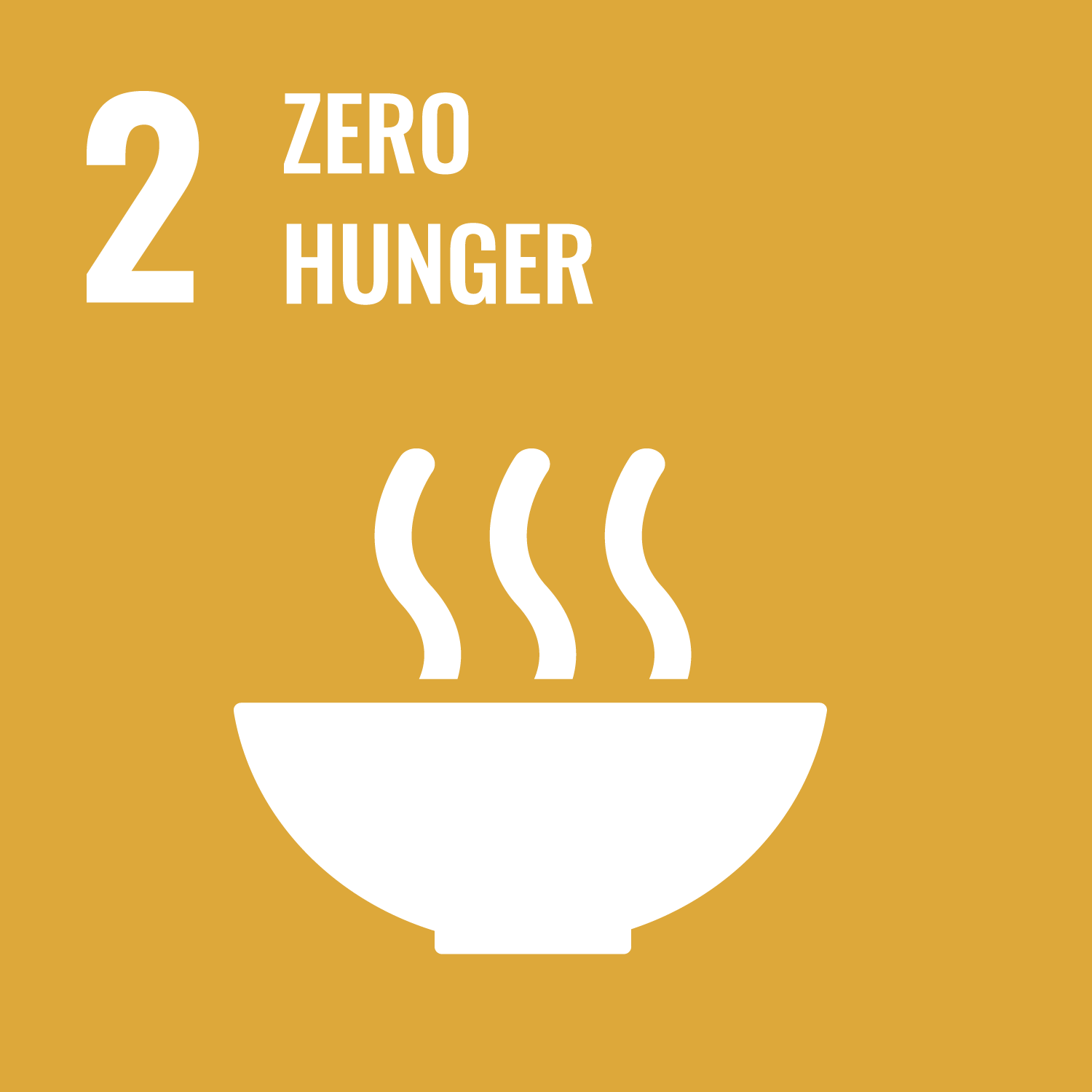




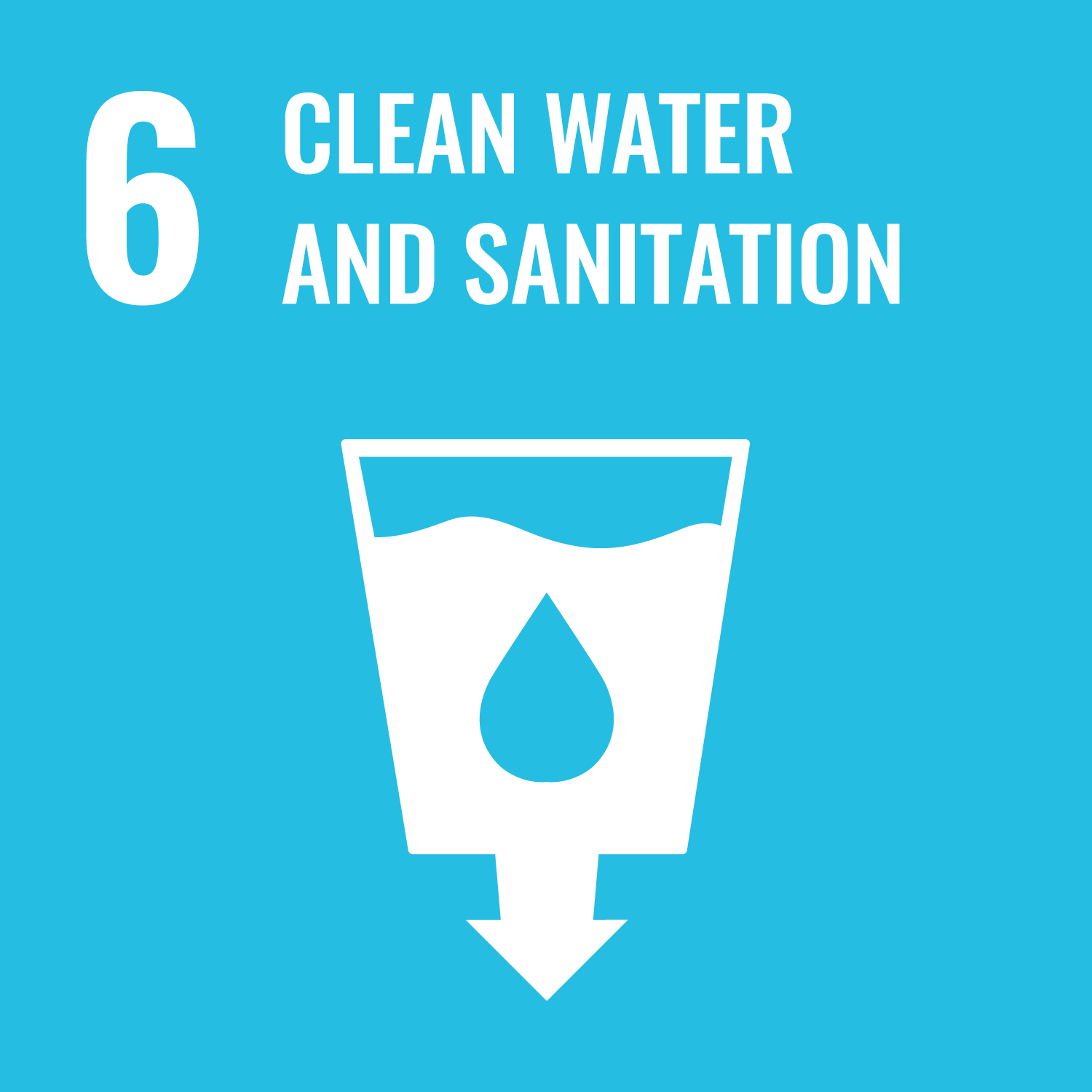
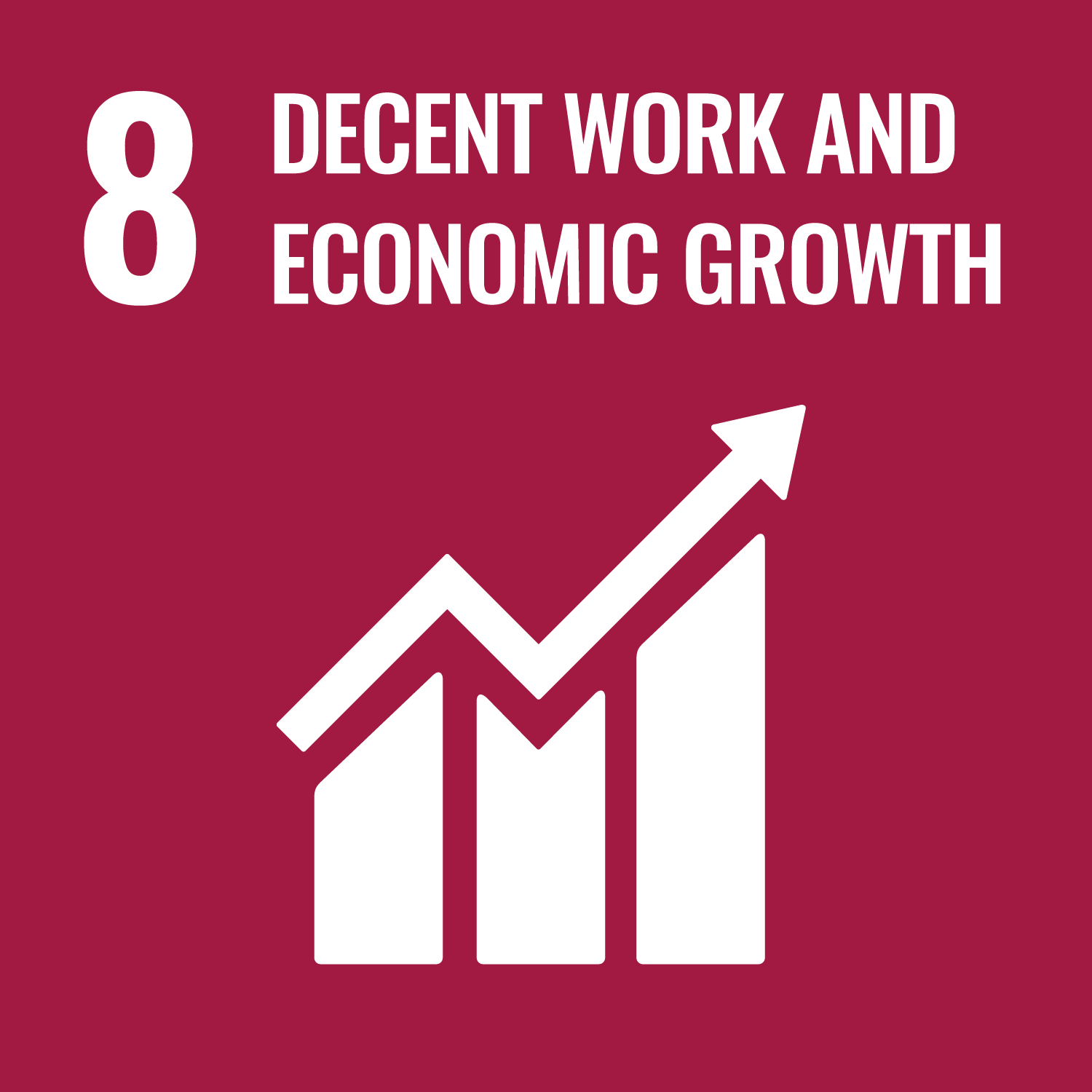


ECHO by the Numbers 2023
1,044,084 ECHO Session Attendances
220 ECHO Hubs Launched + 2 Superhubs
1,275
New ECHO Programs Launched
58New Peer-Reviewed Publications Validating the ECHO Model
ECHO ATTENDANCES

*Data may vary year to year based on manual reconciliation between collection platforms
ECHO Around the World
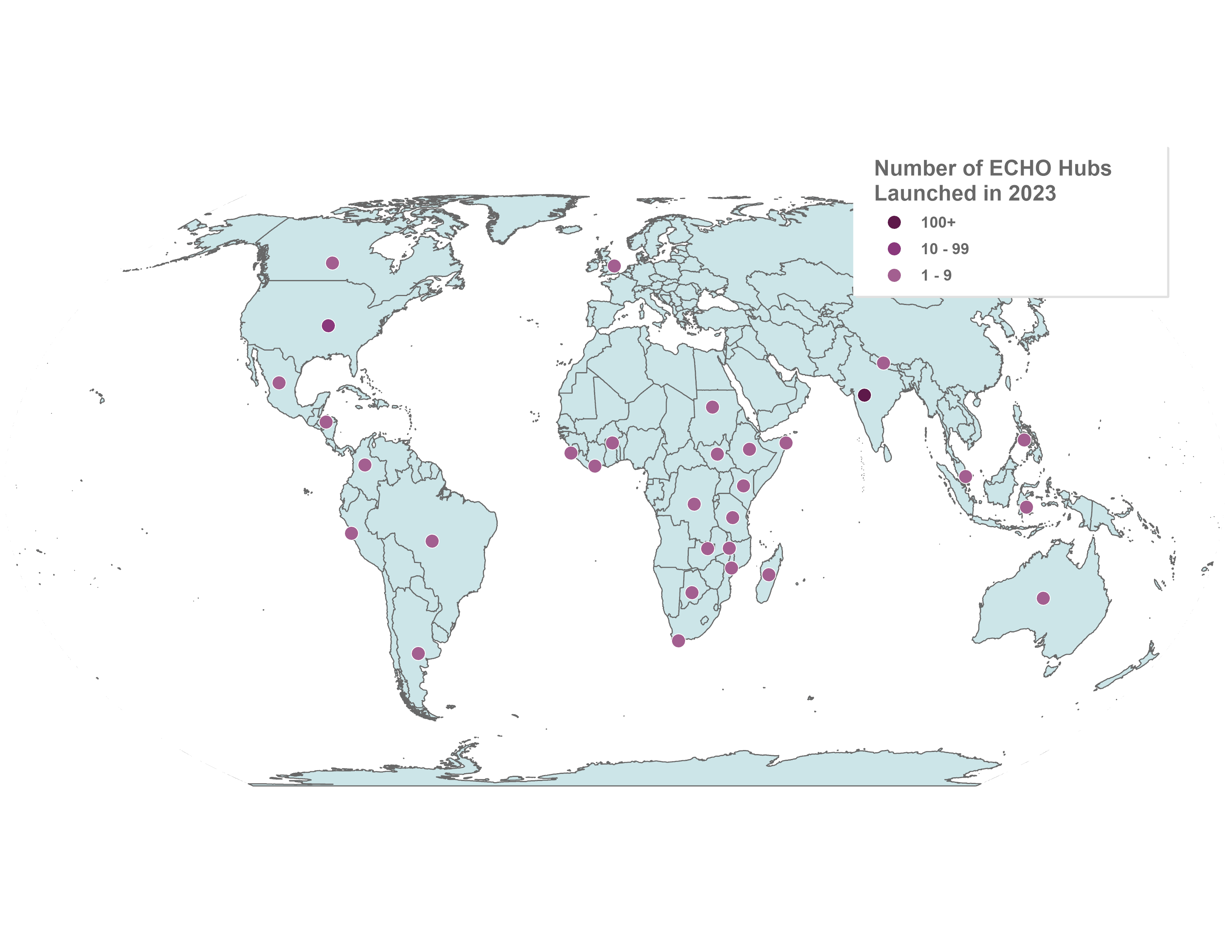
Global South: Local Leaders Creating Change
2023: A year of committed progress
As health care systems in low- and middle-income countries, particularly in the Global South, build back from the COVID-19 pandemic, they face significant challenges —many of which cannot be solved without growing and strengthening the health care workforce.
We worked with ECHO partners, ministries of health and other key constituents in 35 countries to identify the greatest needs and ECHO-focused solutions that can be implemented quickly, cost-effectively and at scale.
Through our collaborative approach, we produced a report highlighting dozens of ready-made solutions for some of the world’s most challenging problems.
ECHO Strategic Initiatives
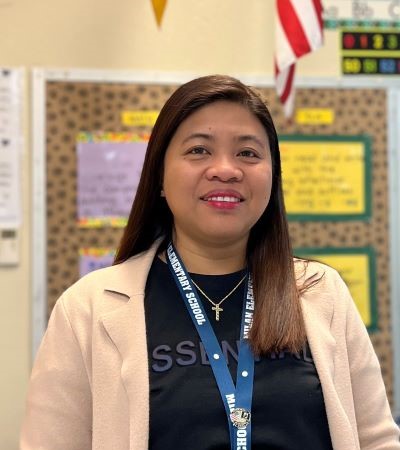
Now I feel confident in my ability to find solutions for struggling readers. It makes a difference – my students have gone from barely writing one or two complete sentences to understanding how to write three-sentence paragraphs.”
Arlene Marquez
Special Education teacher
ECHO participant, Structured Literacy for the Classroom Grants, New Mexico
Research and Evaluation
Funders
2023 Funders
American Society of Addiction Medicine
Association of State and Territorial Health Officials
Board of Trustees of The Leland Stanford Junior University
Bristol Myers Squibb
Bristol Myers Squibb Foundation, Inc.
Centers for Disease Control and Prevention
Chronic Liver Disease Foundation, Inc.
Clinton Health Access Initiative
Dallas County Hospital District
ECMC Foundation
Elizabeth Glaser Pediatric AIDS Foundation
F. Hoffmann-La Roche Ltd
Family Health Centers of San Diego, Inc.
Family Health International
Fort Defiant Indian Hospital Board, Inc.
Foundation for Opioid Response Efforts
GE Foundation
Genentech, Inc
Gilead Sciences, Inc.
HHS Agency for Healthcare Research and Quality
HHS Assistant Secretary for Preparedness and Response
HHS Health Resources and Services Administration
Indian Health Service Navajo Area
JHPIEGO Corporation
Johnson & Johnson Services, Inc.
Laura and John Arnold Foundation
Leona M. and Harry B. Helmsley Charitable Trust
Los Alamos National Laboratory Foundation
Medscape, LLC
Merck Foundation
Ministry of Health of the Republic of Armenia
National Center for Chronic Disease Prev
National Foundation for the Centers for Disease Control and Prevention, Inc.
National Philanthropic Trust
New Mexico Corrections Department
New Mexico Department of Finance & Administration
New Mexico Department of Health
New Mexico Early Childhood Education and Care Department
New Mexico Public Education Department
New Venture Fund
Northwest Portland Area Indian Health Board
Northwest Regional Education Cooperative
Pennsylvania State University
Pfizer, Inc
Regents of the University of California
Reginald S. Lourie Center for Infants and Young Children, Inc.
Robert Wood Johnson Foundation
Schmidt Initiative for Long Covid, LLC
Silicon Valley Community Foundation
Southcentral Foundation
The Audacious Project
The University of New Mexico, College of Population Health
The World Bank
UBS Optimus Foundation
United States Department of Agriculture
United States Department of the Interior
Valhalla Charitable Foundation
W.K. Kellogg Foundation
World Health Organization
Support Project ECHO
Join Us in Saving and Improving the Lives of Millions Around the World.
Your generosity makes a difference. Join Project ECHO in getting the right knowledge to the right places at the right time so we can bring best-practice health care and education to everyone, helping them achieve their full potential. Backed by a solid body of research, Project ECHO’s potential is unprecedented. Put simply, we are changing the way knowledge is shared to advance human health and well-being. The result looks different in every community, but the impact is always profound.

